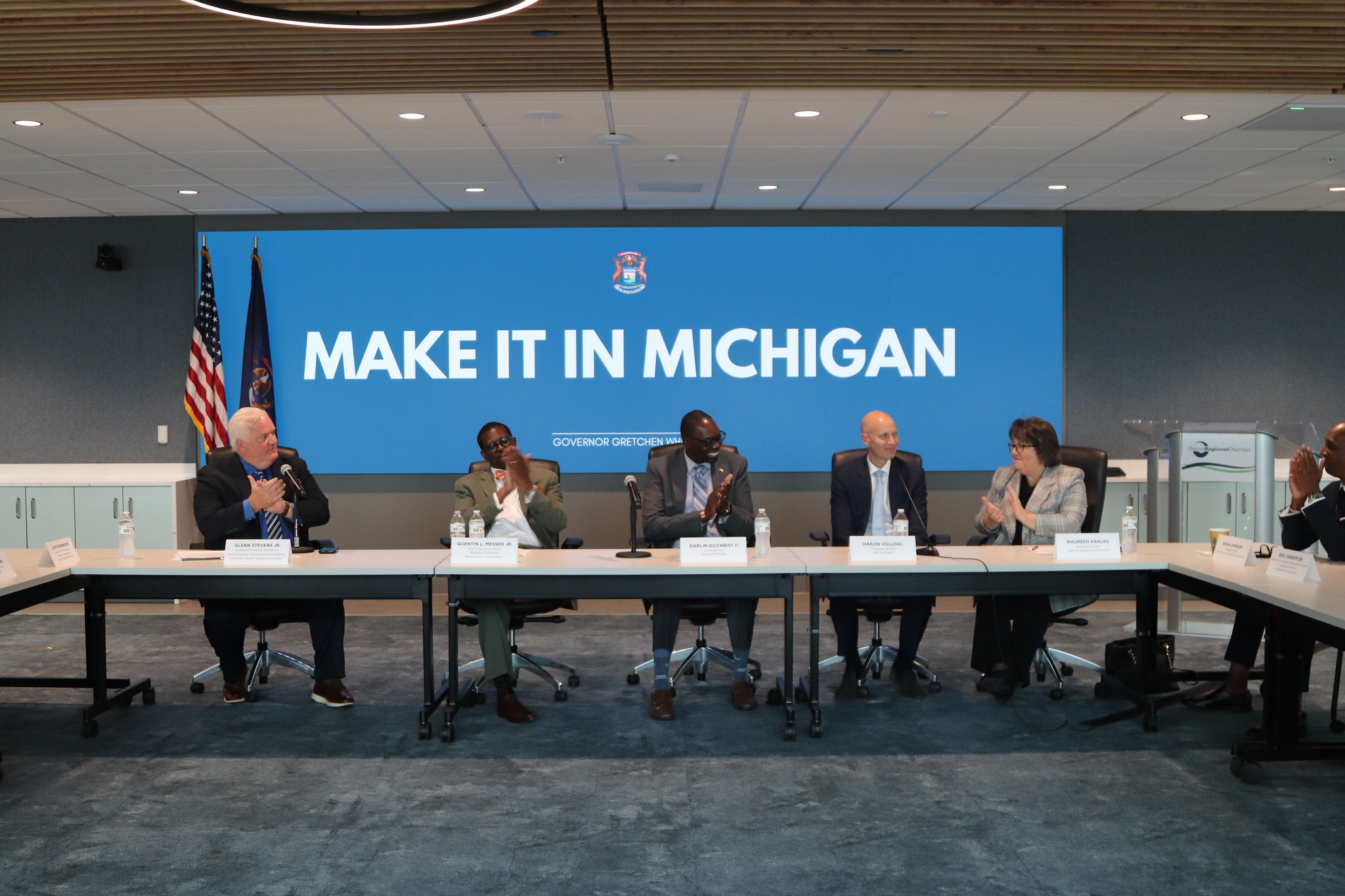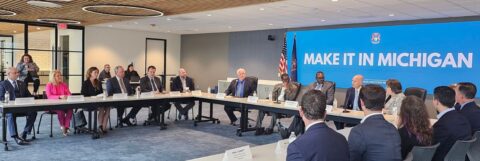Michigan has doubled down on its commitment to building a clean energy economy with a large investment in Norwegian company Nel Hydrogen’s expansion into the U.S. market.
At a media briefing at the Detroit Regional Chamber on Sept. 27, Nel Hydrogen’s Chief Executive Officer, Håkon Volldal, said the company chose Plymouth over 150 other potential sites due to access to Michigan’s highly educated workforce that has industrial experience in the notoriously demanding mobility sector. He also noted their long-time partnership with General Motors Co. and Gov. Gretchen Whitmer’s trip to visit their headquarters in Norway, an extension of the state’s tradition of welcoming foreign companies.
Nel Hydrogen specializes in electrolysis technology, the process of producing hydrogen from water and renewable energy. These “miracle machines” are not the answer to everything, according to Volldal, but it’s a “fantastic tool in our toolbox” when it comes to expanding clean energy solutions.
In the conversation hosted by MichAuto’s Executive Director, Glenn Stevens Jr., Lt. Gov. Garlin Gilchrist II described the Whitmer administration’s commitment to clean energy and climate resiliency and the state’s hydrogen advances as a “continentally defining moment.” He added that the Whitmer administration has been hard at work building relationships with the state legislature and with companies globally, making it clear that “if they want to do business, if they want to be successful, [and] if they want to grow, Michigan is the best place to do that.”

From left to right: Glenn Stevens Jr., Quentin Messer Jr., Lt. Gov. Garlin Gilchrist II, Håkon Volldal, and Maureen Krauss
This particular investment is significant because it will inspire a whole new presence of value and supply chain members in this sector that have created or relocated their business in proximity to a business like Nel Hydrogen. Gilchrist shared that the state has been able to compete so aggressively because of partnerships at every level of government.
Quentin Messer Jr., Chief Executive Officer at the Michigan Economic Development Corporation, elaborated on this governmental collaboration, what he calls the “Team Michigan approach.” Economic development based on a collaborative team culture is “just the way Michigan rolls.” When building upon traditional strengths to diversify, Messer recommended Michigan not shy away from its identity as the state that “put the world on wheels.” It will be essential to take the innovation, hard work, and ingenuity that helped the state dominate the mobility industry and use them to grow other sectors.
An important development partner for the state is the Detroit Regional Partnership (DRP), whose team travels the globe to talk to strategic companies about why the Region’s assets are the best fit to help them succeed. The organization recently launched the Global Epicenter of Mobility initiative, a $52.2 million grant from the federal government to develop technology, create jobs, and ready new sites for business. The hydrogen sector has been seeing a surprising increase in activity, which DRP President and Chief Executive Officer Maureen Krauss attributes to “the over 400 assets that already exist here in the mobility space. Hydrogen companies are recognizing that these are assets they can use for their success.”

